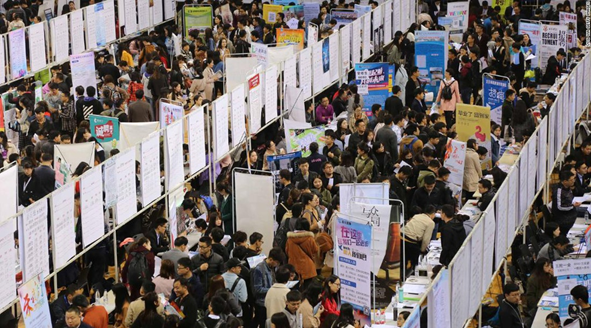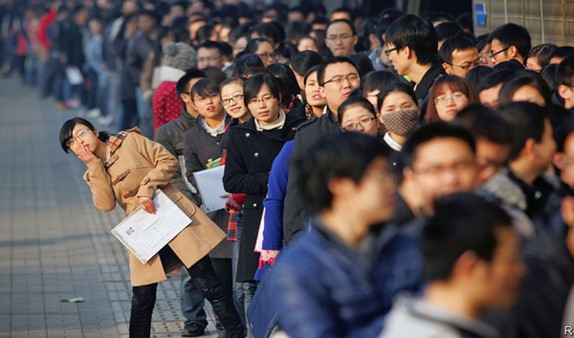In 2022, the number of graduates from colleges and universities in China will reach 10.76 million, which is the first time the number of graduates has surpassed 10 million. Furthermore, the increase in the number of graduates over the past year is almost equal to the total increase in the number of graduates over the past nine years. China’s Ministry of Education said, “the employment situation is very complicated and harsh.”

CCTV News recently reported that in 2022, the number of Chinese college and university graduates is expected to reach 10.76 million, an increase of 1.67 million people compared to 2021. This is the first time the number of university graduates of the country has surpassed 10 million people, and also the year with the highest increase in the number of graduates in recent years, it can be seen that the laborers Newcomers of this society will face pressure to find work.
On November 23, the official website of the Ministry of Education of China posted “Notice of good work in terms of employment and job search for university graduates in 2022”. Besides, it is pointed out that the scale and number of university graduates in 2022 will break the highest record ever, the employment situation is extremely complicated and intense. At the same time, launch recruitment activities on campus, helping students find jobs as soon as possible after graduation.

The number of university graduates in China is increasing year by year, due to the slow growth of the Chinese economy and the COVID-19 epidemic from the end of 2019 until now, the Government has temporarily students graduate with the “enlarged enrollment” scheme, but will still end up facing problems with graduation and student employment.
This year there are 9.09 million university graduates in China, this is the first time the figure of 9 million has been broken, next year it is estimated to reach 10.76 million, an increase of 1.67 million . China News Weekly reported that in the nearly 10 years from 2011 to 2019, the number of university graduates increased by only 1.74 million.
The article points out that the main reason for the continuous increase in the number of university graduates is the continuous expansion of enrollment. This time, the number of 1.67 million people increased rapidly because in 2019, enrollment was expanded by 1 million people. This is also 20 years after the project to expand university enrollment in 1999, higher education has once again expanded enrollment on a large scale.
The number of graduates has not peaked yet. In 2019 and 2020.
The article also points out that, in response to the harsh job search situation, a large number of ordinary university graduates have increased their participation in the institute’s exam, the civil service exam, and the public service exam. assess teacher capacity.
For example, this year, the written test of the 2022 civil service exam of central agencies and affiliated agencies of China started today, and 2.123 million people have passed the examination. approved, surpassing the 2 million mark for the first time.
In addition to changes in the environment and great competitive pressure, the article also quoted Mr. Xiong Bingqi, director of the 21st Century Education Research Institute, as saying that the low quality of talent training is also one of the reasons. basically make it difficult for university graduates to find jobs.
The service industry is the industry with the largest number of university graduates. In 2019, China entered the era of universalization of higher education. In the same year, the value added of the service sector accounted for 53.9% of the gross domestic product (GDP). By contrast, as early as the 1970s, the value added of the service sector accounted for more than 70% of US GDP.
The article argues that the root cause of that disparity is that students trained in higher education in China, after entering society, are unable to make innovative contributions to promote the development of the society. qualitative changes in the industrial structure, but lack of creativity, decrease in education level, etc.
.